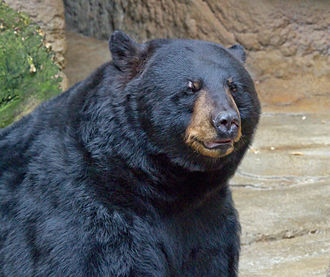A bear management bill (A360) in the Assembly Commerce Committee caused Republican members to

push back, unsuccessfully ultimately, as Democrats ramrodded the bill out of committee.
The final vote was 8-3 in favor of the bill, which GOP members claim harms deer hunters, specifically removing key protections for deer baiting, despite claims to the contrary. “The bill is a page long,” said Assemblyman Brian Bergen (R-25). “We don’t have to do a Vulcan mind melt for the legislative intent. It says right here, there are very, very few exceptions, none of which include deer baiting, and the deer baiting is taken out.”
A360 would amend the law concerning the feeding of black bear. Under current law, the prohibition on the feeding of black bear does not apply in the case of an unintentional feeding of a black bear. “Unintentional feeding” is defined in the law as using or placing any material for a purpose other than to attract or entice black bears but which results in the attraction or enticement of a black bear, and includes the use of bait for deer in accordance with section 1 of P.L.1997, c.424 (C.23:4-24.4) and the State Fish and Game Code.
This bill clarifies that the prohibition applies to any food and includes the placement of food. The bill deletes the exemption for, and the definition of, “unintentional feeding,” and replaces it with a specific list of activities or actions that are not considered to be the feeding of black bear. The bill provides that the following activities would not be subject to the prohibition in the bill: (1) any person licensed pursuant to law to possess wildlife; (2) any crop, agricultural product, or animal feed on the premises of any person engaged in agricultural or horticultural activities; (3) a birdfeeder maintained between the dates of April 1 and November 30, provided that certain conditions are met; (4) the placement of food at a shelter or pound licensed by the Department of Health or a municipally approved managed cat colony, provided that any uneaten food is removed every night; (5) the feeding of companion animals, provided that any uneaten food is removed every night; and (6) any action by federal, State, or local authorities that requires feeding, baiting, or luring of wildlife for management or scientific purpose.
The bill would also amend the current law concerning the use of civil penalties recovered for violations. Under current law, any penalties are to be paid to the Division of Fish and Wildlife. Under this bill, any penalties collected would be remitted to the municipality in which the violation occurred.
(Visited 46 times, 46 visits today)
Click here for the full Insider Index
Residents of Bergen County in New Jersey are up in arms over a proposed bear management bill that they believe will have negative consequences for both the local bear population and the community as a whole. The bill, which aims to increase hunting quotas for black bears in the state, has sparked outrage among residents who feel that it is a cruel and unnecessary measure.
The proposed bill comes at a time when the black bear population in New Jersey is already facing significant threats due to habitat loss and human encroachment. Many residents fear that increasing hunting quotas will only serve to further decimate the bear population and disrupt the delicate balance of the ecosystem.
In addition to concerns about the impact on the bear population, residents are also worried about the potential dangers of increased hunting in their communities. They fear that more hunting will lead to increased encounters between bears and humans, putting both residents and bears at risk.
Furthermore, many residents feel that the bill does not address the root causes of human-bear conflicts, such as improper garbage disposal and habitat destruction. They argue that a more comprehensive approach to bear management, including education and community outreach, is needed to effectively address these issues.
Despite the opposition from residents, the bear management bill is still being considered by lawmakers in New Jersey. Residents are continuing to voice their concerns and advocate for a more humane and sustainable approach to bear management in the state.
In conclusion, residents of Bergen County are standing up against the proposed bear management bill in New Jersey, citing concerns about its potential impact on the bear population and the community. They are calling for a more holistic approach to bear management that takes into account the needs of both bears and humans, and are urging lawmakers to consider alternative solutions to address human-bear conflicts in the state.


